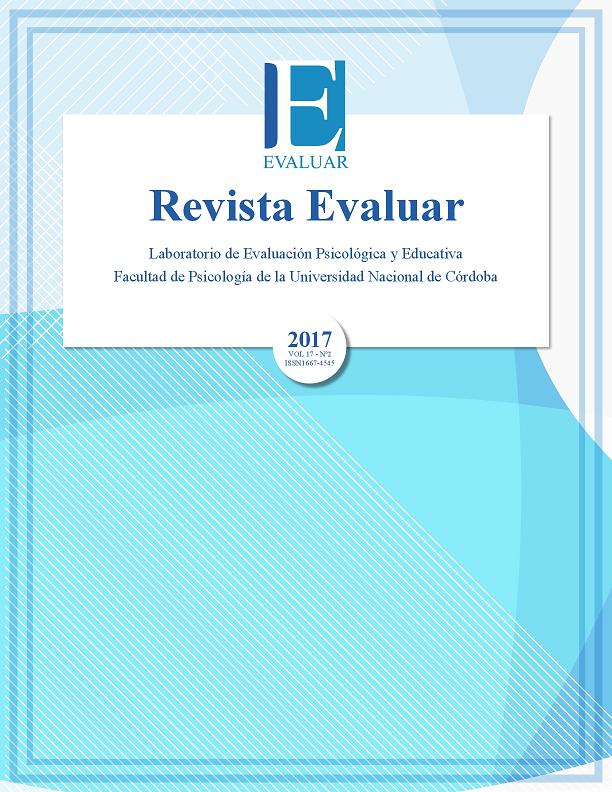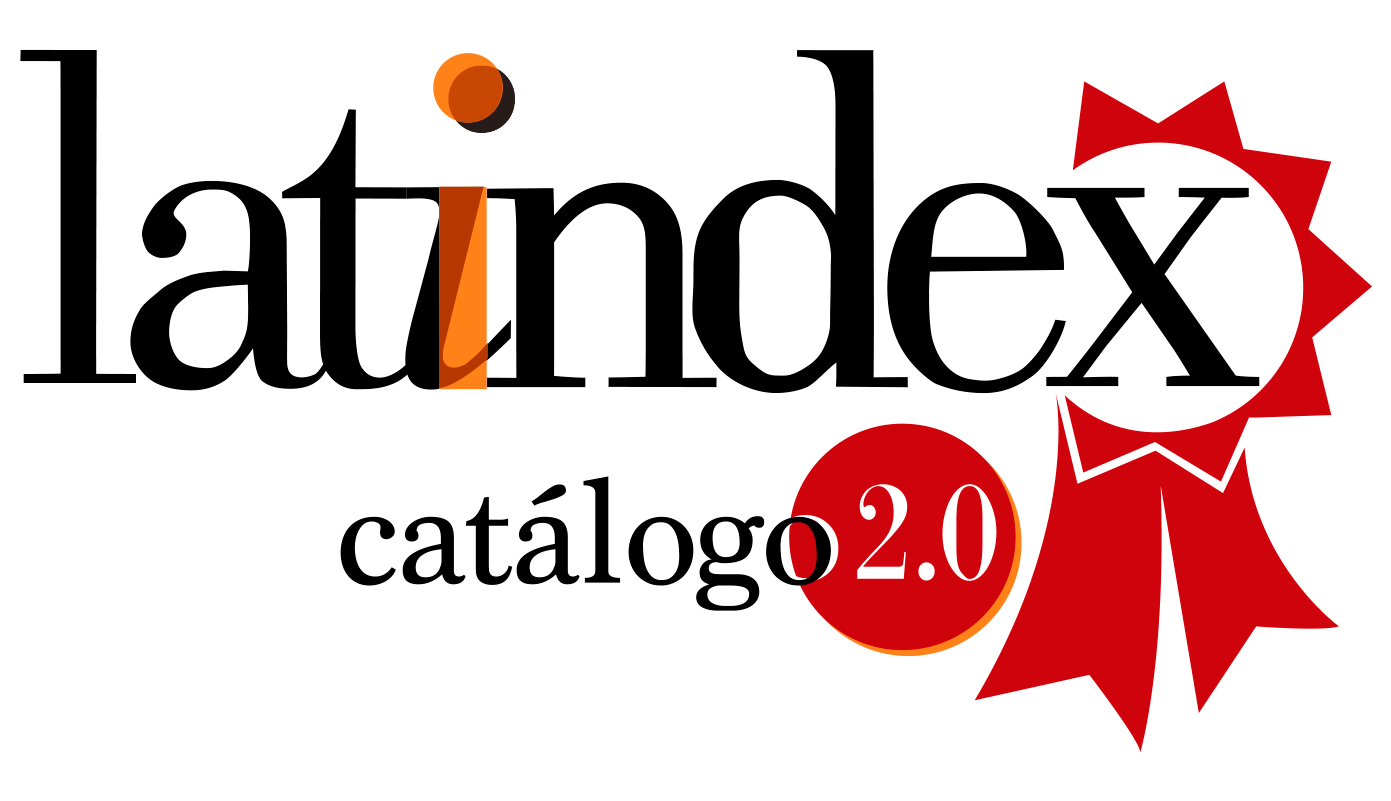MSLQ-UY, validation with Uruguayan university students
DOI:
https://doi.org/10.35670/1667-4545.v17.n2.18716Keywords:
MSLQ, validación, motivación, aprendizaje autorregulado, psicologíaAbstract
The current study translates, adapts, and validates for Uruguayan university students the abbreviated Spanish ver-sion of the Motivated Strategies for Learning Questionnaire (MSLQ) developed by Pintrich and De Groot (1990). The MSLQ was created within a motivational and self-regulat-ed socio-cognitive framework. This questionnaire includes 44 items, and the response choices are rated on a 7-point Likert-type scale. MSLQ is divided into two sections: mo-tivation and self-regulated learning strategies (SRLS). The sample included 318 students total who belong the Psychology department of Universidad de la República (Uruguay). Results have shown that both motivation (α = .76) and self-regulated learning strategies (α = .75) sections have acceptable internal consistency to be used in research studies. Although the exploratory factor analysis confirms the original five-factor structure, we suggest a reorganiza-tion of the self-regulated learning strategies section.
Downloads
References
Carretero-Dios, H., & Pérez, C. (2005). Normas para el desarrollo y revisión de estudios instrumentales. International Journal of Clinical and Health Psychology, 5(3), 521-551. Recuperado de http://www.aepc.es/ijchp
Credé, M., & Phillips, L. A. (2011). A meta-analytic review of the Motivated Strategies for Learning Questionnaire. Learning and Individual Differences, 21(4), 337-346. doi: 10.1016/j.lindif.2011.03.002
Cattell, R. B. (1966). The scree test of the number of significant factors. Multivariate Behavioral Research, 1, 140-161. Recuperado de http://www.tandfonline.com/doi/abs/10.1207/s15327906mbr0102_10
Curione, K., & Huertas, J. A. (2016). Revisión del MSLQ: Veinticinco años de evaluación motivacional. Revista de Psicología, 12(24), 55-67. Recuperado de www.uca.edu.ar/revistadepsicologia
Duncan, T. G., & McKeachie, W. J. (2005). The making of the Motivated Strategies for Learning Questionnaire. Educational Psychologist, 40(2), 117-128. doi: 10.1207/s15326985ep4002_6
Dunn, K. E., Lo, W.-J., Mulvenon, S. W., & Sutcliffe, R. (2012). Revisiting the Motivated Strategies for Learning Questionnaire: A theoretical and statistical reevaluation of the metacognitive self-regulation and effort regulation subscales. Educational & Psychological Measurement, 72(2), 312-331. doi: 10.1177/0013164411413461
Erturan-Ilker, G., Arslan, Y., & Demirhan, G. (2014). A validity and reliability study of the Motivated Strategies for Learning Questionnaire. Educational Sciences: Theory Practice, 14(3), 829-833. doi: 10.12738/estp.2014.3.1871
Ferrando, P. J., & Anguiano-Carrasco, C. (2010). El análisis factorial como técnica de investigación en psicología. Papeles del Psicólogo, 31(1), 18-33. Recuperado de http://www.papelesdelpsicologo.es/
Harter, S. (1981). A new self-report scale of intrinsic versus extrinsic orientation in the classroom: Motivational and informational components. Developmental Psychology, 17(3), 300-312. doi: 10.1037/0012-1649.17.3.300
Hilpert, J. C., Stempien, J., Van der Hoeven-Kraft, K. J., & Husman, J. (2013). Evidence for the latent factor structure of the MSLQ: A new conceptualization of an established questionnaire. SAGE Open, 3(4), 1-10. doi: 10.1177/2158244013510305
IBM. (2006). SPSS (Versión 15) [software]. Armonk, NY: IBM Corp.
International Test Commission (2005). International Guidelines on Test Adaptation. Recuperado de http://www.intestcom.org
Jakešová, J., & Hrbáčková, K. (2014). The Czech adaptation of Motivated Strategies for Learning Questionnaire (MSLQ). Asian Social Science, 10(12), 72-78. doi: 10.5539/ass.v10n12p72
Karagüven, M. H. Ü. (2012). The adaptation of Academic Motivation Scale to Turkish. Educational Sciences: Theory & Practice, 12(4), 2611-2618. Recuperado de http://files.eric.ed.gov/fulltext/EJ1002866.pdf
Lee, J. C.-K., Yin, H. B., & Zhang, Z. H. (2010). Adaptation and analysis of Motivated Strategies for Learning Questionnaire in the Chinese setting. International Journal of Testing, 10(2), 149-165. doi: 10.1080/15305050903534670
Magno, C. (2011). Validating the Academic Self-regulated Learning Scale with the Motivated Strategies for Learning Questionnaire (MSLQ) and Learning and Study Strategies Inventory (LASSI). The International Journal of Educational and Psychological Assessment, 7(2), 56-73. Recuperado de https://sites.google.com/site/tijepa2012/home
Maralani, F. M. (2016). The mediation role of intrinsic and extrinsic motivation in the relationship between creative educational environment and metacognitive self-regulation. Journal of Education and Learning, 5(3), 272-277. doi: 10.5539/jel.v5n3p272
Mayer, J. D., Faber, M. A., & Xu, X. Y. (2007). Seventy-five years of motivation measures (1930-2005): A descriptive analysis. Motivation and Emotion, 31(2), -103. doi: 10.1007/s11031-007-9060-2
Muis, K. R., Winne, P. H., & Jamieson-Noel, D. (2007). Using a multitrait-multimethod analysis to exa-mine conceptual similarities of three self-regulated learning inventories. BritishJournal of Educational Psychology, 77(1), 177-195. doi: 10.1348/000709905X90876
Muñiz, J., Elosua, P., & Hambleton, R. K. (2013). Directrices para la traducción y adaptación de los tests (2ª ed.). Psicothema, 25(2), 151-157. Recuperado de http://www.psicothema.com
Nunnally, J. C., & Bernstein, I. (1995). Teoría psicométrica. Madrid, España: MCGraw-Hill.
Núñez J. L., Martín-Albo, J., & Navarro, J. G. (2005). Validación de la versión española de la Échelle de Motivation en Éducation. Psicothema, 17(2), 344-349. Recuperado de http://www.psicothema.com
Pardo, A., & Ruiz, M. (2002). SPSS 11 Guía para el análisis de datos. Madrid:Mc Graw Hill.
Pintrich, P. R. (2000). The role of goal orientation in self-regulated learning. En M. Boekaerts, P. R. Pintrich, & M. Zeidner (Eds.), Handbook of Self-regulation (pp. 451-502). San Diego, CA: Academic Press. doi: 10.1016/B978-012109890-2/50043-3
Pintrich, P. R., & De Groot, E. V. (1990). Motivational and self regulated learning components of classroom academic performance. Journal of Educational Psychology, 82(1), 33-40. doi: 10.1037/0022-0663.82.1.33
Pintrich, P. R., Smith, D. A., García, T., & McKeachie, W. (1991). A Manual for the use of the Motivated Strategies for Learning Questionnaire (MSLQ). Ann Arbor: University of Michigan. Recuperado de ht-tps://eric.ed.gov/?id=ED338122
Pintrich, P. R., Smith, D. A. F., García, T., & McKeachie,W. J. (1993). Reliability and pre-dictive validity of the Motivated Strategies for Learning Questionnaire (MSLQ). Educational and Psychological Measurement, 53(3), 801-813. doi: 10.1177/0013164493053003024
Purdie, N., & Hattie, J. (1996). Cultural differences in the use of strategies for self-regulated learning. American Educational Research Journal, 33(4), 845-871. Recuperado de http://www.jstor.org/stable/1163418?seq=1#page_scan_tab_contents
Ramirez-Dorantes, M. C., Canto y Rodríguez, J. E., Bueno-Alvarez, J. A., & Echazarreta-Moreno, A. (2013). Psychometric validation of the Motivated Strategies for Learning Questionnaire, with Mexican university students. Electronic Journal of Research in Educational Psychology, 11(1), 193-214. Recuperado de http://www.investigacion-psicopedagogica.org/revista/new/index.php
Rao, N., & Sachs, J. (1999). Confirmatory factor analysis of the Chinese version of the Motivated Strategies for Learning Questionnaire. Educational & Psychological Measurement, 59(6), 1016-1029. doi: 10.1177/00131649921970206
Rotgans, J. I., & Schmidt, H. G. (2010). The Motivated Strategies for Learning Questionnaire: A measure for students’ general motivational beliefs and learning strategies? The Asia-Pacific Education Researcher, 19(2), 357-369. doi: 10.3860/taper.v19i2.1603
Ryan, R. M., & Deci, E. L. (2000). Intrinsic and extrinsic motivations: Classic definitions and new directions. Contemporary Educational Psychology, 25(1), 54-67. doi: 10.1006/ceps.1999.1020
Schunk, D. H. (2005). Self-regulated learning: The educational legacy of Paul R. Pintrich. Educational Psychologist, 40(2), 85-94. doi: 10.1207/s15326985ep4002_3
Vallerand, R. J., Blais, M. R., Brière, N. M., & Pelletier, L. G. (1989). Construction et validation de l’Éche-lle de Motivation en Éducation (EME) [Construction and validation of the Motivation toward Education Scale]. Canadian Journal of Behavioural Science/Revue Canadienne des Sciences du Comportement, 21(3), 323-349. doi: 10.1037/h0079855
Van Widenfelt, B. M., Treffers, P. D. A., De Beurs, E., Siebelink, B. M., & Koudijs, E. (2005). Translation and cross-cultural adaptation of assessment instruments used in psychological research with children and families. Clinical Child and Family Psychology Review, 8(2), 135-147. doi: 10.1007/s10567-005-4752-1
Veenman, M. V. J. (2011). Alternative assessment of stra-tegy use with self-report instruments: A discussion. Metacognition and Learning, 6(2), 205-211. doi: 10.1007/s11409-011-9080-x
Wolters, C. A. (2003). Regulation of motivation: Evaluating an underemphasized aspect of self-regulated learning. Educational Psychologist, 38(4), 189-205. doi: 10.1207/S15326985EP3804_1
Downloads
Published
How to Cite
Issue
Section
License
Copyright (c) 2017 Karina Curione

This work is licensed under a Creative Commons Attribution 4.0 International License.
Revista Evaluar aplica la Licencia Internacional de Atribuciones Comunes Creativas (Creative Commons Attribution License, CCAL). Bajo esta licencia, los autores retienen la propiedad de copyright de los artículos pero permiten que, sin que medie permiso de autor o editor, cualquier persona descargue y distribuya los artículos publicados en Evaluar. La única condición es que siempre y en todos los casos se cite a los autores y a la fuente original de publicación (i.e. Evaluar). El envío de artículos a Evaluar y la lectura de los mismos es totalmente gratuito.




_(3).jpg)



.jpg)



